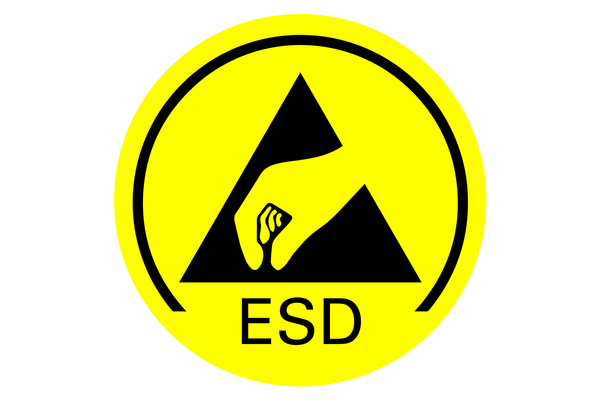ESD is the term used to describe an electrostatic discharge. It describes the uncontrolled equalisation of electrical charge between two differently charged objects. These discharges are only perceptible to humans from approx. 3,000 volts. But depending on the component, a voltage of about 30 volts can be sufficient to cause irreversible damage.
Electrostatic charges occur in everyday situations. For example, when walking with plastic soles over a carpet, when moving containers or through the movement of conveyor belts. This mostly negative electrical charge discharges abruptly when it comes into contact with another conductive body or an earth.
While these discharges are usually harmless to humans, they pose a great risk to electrical components. Although they are initially invisible to the eye, damage caused by electrostatic discharge can have costly consequences. For example, they can cause total loss or hidden defects. These can then lead to late failures and/or complaints, high repair and replacement costs, which damage the reputation and possibly result in customer churn. In order to prevent damage to sensitive components as far as possible, it is important to introduce certain ESD protection measures in the company and to implement them consistently.
EPA describes a electrostatic protected area. ESD-sensitive assemblies and components may only be handled within these protected zones and by trained personnel. The boundaries of the EPA must be marked and may only be entered by trained staff or instructed visitors. ESD protective equipment is mandatory in the EPA to ensure optimum ESD protection.
And perfect ESD protection pays off in many ways
Increase in product quality
Increasing customer satisfaction
Reduction in susceptibility to faults and the associated costs
Reduction of failure risks
Reduction of product handling risks
Fulfilment of quality standards



